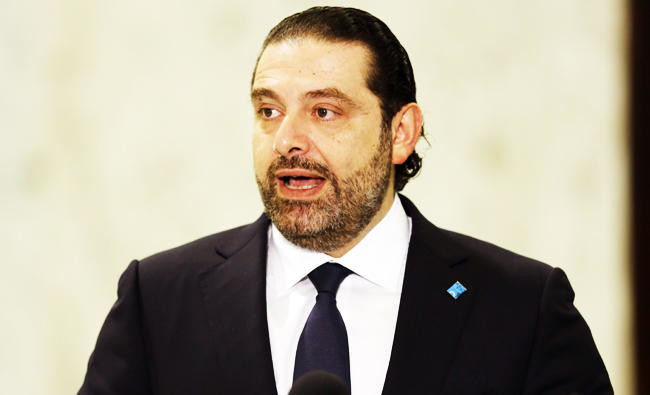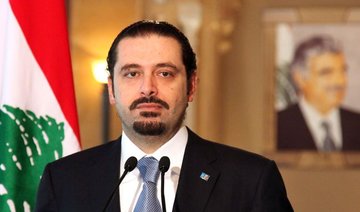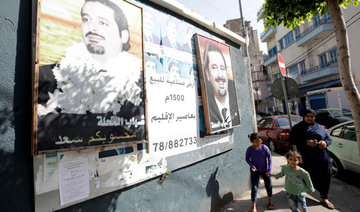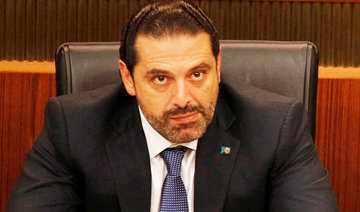BEIRUT: Lebanon has continued to feel the repercussions of the shock resignation of Lebanese Prime Minister Saad Al-Hariri.
Political positions ranged from support from Al-Hariri’s allies and those who remain in shock, such as the Free Patriotic Movement to Hezbollah, which insists on considering Al-Hariri’s decision “bad.”
Dar Al-Fatwa, Lebanon’s highest Sunni authority, witnessed a series of meetings and statements stressing the importance of the “unity of the Sunni sect to which the prime minister belongs, according to the Lebanese constitution.
“No one of the Sunni political figures will accept his appointment as prime minister in succession to Prime Minister Al-Hariri,” sources close to Dar Al-Fatwa told Arab News, pointing out that the meetings “unanimously agreed to confirm unity at this crucial stage.”
Lebanon’s Grand Mufti Sheikh Abul Latif Al-Daryan met with Charge d’Affaires of the Saudi Embassy in Lebanon, Minister Plenipotentiary Walid Al-Bukhari.
“What is happening in the Lebanese arena today is dangerous and requires more awareness, wisdom, and national unity among the Lebanese,” Al-Daryan said.
He stressed that the resignation of Al-Hariri was “a shock that did not come out of nothing. We support him and understand this resignation and it should be treated with care and dialogue.”
“Lebanon is for all its people,” Al-Daryan stressed, saying: “Saudi Arabia is keen on the security and stability of Lebanon and wants what is good for Lebanon as it wants good for other Arab countries that have fraternal relations with Lebanon and the Lebanese people.”
The head of the “Future” parliamentary bloc, Fouad Siniora, said in media statements that the resignation of Al-Hariri was "an alarm for the developments of political settlement in Lebanon.”
Hezbollah and the Free Patriotic Movement considered the political settlement accepted by Al-Hariri as "a weakness to achieve political gains.”
Siniora said: “The state should be the sole authority in Lebanon,” accusing Hezbollah of “acting according to Iranian instructions.”
Marada movement head, Suleiman Franjieh, tweeted: “We will not accept a prime minister who defies the Sunni component and does not enjoy national consensus.”
Strategic expert Antoine Haddad told Arab News: “Lebanon faces several possibilities, either an unprecedented Israeli war with its destructive capability, or Lebanon being completely isolated as a result of a larger economic blockade, especially as Arab countries are an important economic partner for Lebanon, both in terms of Lebanese investment and employment in the Gulf states.”
This isolation may be added to the recent US sanctions which put Lebanon in an unprecedented situation. “The likely possibility is that Hezbollah and Iran will back down from their determination to use Lebanon as a battlefield,” Haddad added.
The presidential palace did not issue any statement about the announcement of the date of parliamentary consultations to appoint a new prime minister, which is stipulated in the constitution after the prime minister submits his resignation.
Free Patriotic Movement leader, Gebran Bassil, commented on the crisis in an interview with his supporters that appeared to be an attempt to heal the rift with Al-Hariri.
“If it is something that is not agreed upon by everyone; it comes with the background of preserving the country. We know very well that rule in Lebanon is not about excluding any Lebanese. Everything that happened before was a mistake that will not be repeated. We are determined to be together in ruling and government.”

























